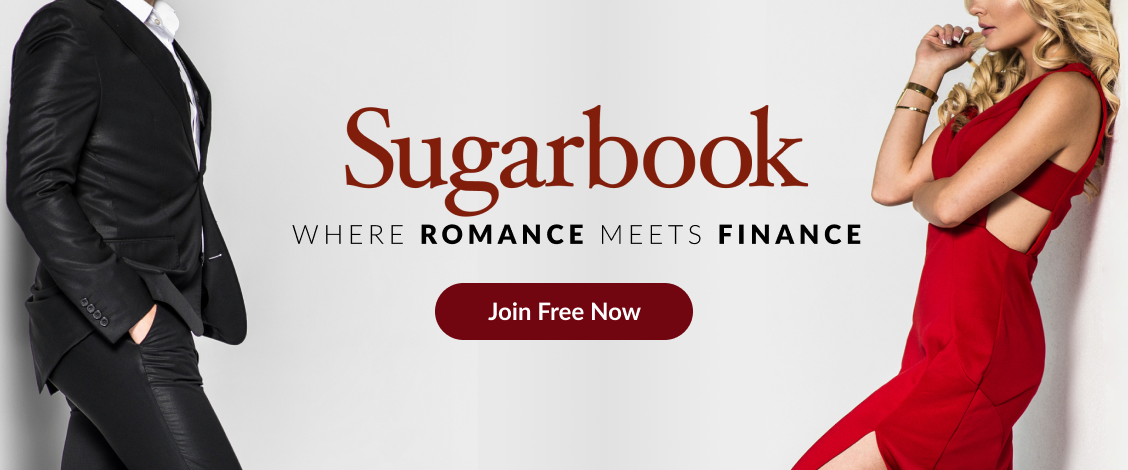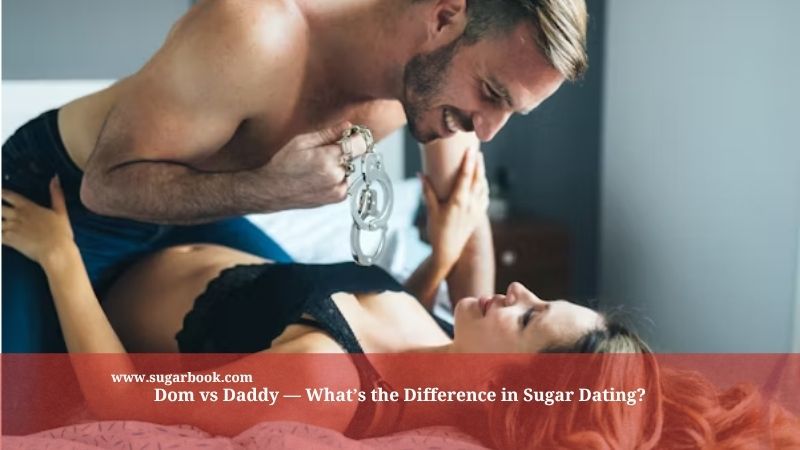
Meet successful sugar daddies and confident sugar babies on the world’s leading sugar dating app. Join free today.
📌 Editor’s Note (2025 Update): This article now clearly breaks down the difference between “Dom” and “Daddy” in modern sugar dating—plus how to set your own boundaries.
The rise of sugar dating has brought with it an evolution in how people understand romantic roles and emotional dynamics. Among the most frequently misunderstood comparisons is the difference between dom vs daddy in sugar dating. These roles, rooted in different subcultures and emotional contexts, have started to overlap, especially as more people explore dominant-submissive dynamics within sugar relationships.
In 2025, the intersection of sugar culture and dominance roles has prompted many sugar babies to ask: Which one fits better for me—a dom or a daddy? Platforms like Sugarbook have expanded beyond just financial partnerships and now offer a safe space to explore deeper emotional connections, including those that involve consensual power exchange.
Let’s unpack the dom vs daddy sugar dating conversation in full.
Contents
Dom vs Daddy: What’s the Difference?
Although both terms involve dominance, the emotional tone and intentions behind a dom versus a daddy are quite different—especially in sugar dating culture.
What Is a Dom in Dating Contexts?
A dom (short for dominant) typically refers to someone who takes on a controlling or authoritative role in a relationship. This concept originates from BDSM dynamics, where the dom exerts structured power over a submissive (sub), often in an explicitly negotiated, rule-bound relationship.
Key traits of a dom may include:
-
Control over routines, rules, or interactions
-
A focus on discipline or obedience (with consent)
-
Emotional boundaries that may prioritize roles over affection
-
Structured dominance, often sexual or lifestyle-based
In sugar dating, a dom might appeal to those who seek clearly defined power dynamics, accountability, or structured support.
What Is a Daddy in Dating Culture?
The daddy role, on the other hand, often blends authority with affection. In sugar dating, a daddy may act as a mentor, provider, or emotionally available partner who blends care with leadership.
Traits of a “daddy” in sugar dating:
-
Nurturing presence combined with confidence
-
Emotional support and mentorship
-
Less emphasis on rigid control; more on personal growth and trust
-
Can include role-play, but often emotionally deeper than a dom
A sugar baby involved with a daddy often receives both lifestyle perks and emotional companionship—something Sugarbook’s platform is designed to support.
Power Dynamics Explained in Dom vs Daddy Sugar Dating
One of the most essential aspects of understanding dom vs daddy sugar dating is how power plays out in each relationship. These dynamics are not about coercion—they are rooted in consent and mutual understanding.
Consent and Negotiation
Both dom and daddy dynamics require open dialogue. However, dom dynamics may involve detailed agreements—contracts, rules, safewords—especially when part of a BDSM lifestyle. Daddies, on the other hand, lean into softer, more fluid boundaries based on mutual trust rather than strict negotiation.
Sugarbook empowers users to define their terms. Whether you’re seeking a dom or a daddy dynamic, it provides a safe digital environment to initiate these conversations clearly.
Emotional Needs vs Physical Authority
A dom is often associated with control over actions and decisions. Emotional needs may be secondary or carefully contained within agreed limits. Daddies, conversely, often prioritize emotional connection, providing comfort, mentorship, and long-term support.
While doms enforce limits, daddies nurture growth. Both roles can involve support and structure, but the energy and purpose of their authority differ dramatically.
Misconceptions and Cultural Biases
The dom vs daddy sugar dating dynamic is often misunderstood. Media tends to portray doms as controlling and cold, while daddies are either fetishized or mocked. In reality, both roles can be healthy and empowering—when they stem from trust, communication, and emotional safety.
Which One Fits Sugar Dating More?
While both roles can exist in sugar culture, one is often more naturally aligned with sugar dating’s values—especially those encouraged on Sugarbook.
Sugarbook’s Role in Curating Safe Sugar Relationships
Sugarbook promotes transparency, respect, and mutual consent. It’s designed for users who seek arrangements based on empowerment and trust. That naturally resonates more with daddy-style dynamics, where affection, mentorship, and soft authority are prioritized over rigid control.
That said, Sugarbook’s customizable profiles and messaging filters do allow sugar babies and sugar daddies (or doms) to set boundaries, preferences, and expectations clearly.
When Dom Works in Sugar Culture
A dom dynamic may be appealing for sugar babies who desire strict structure or who are exploring the BDSM side of their identity. Some sugar babies seek arrangements where obedience or discipline is part of the appeal—so long as it’s safe, consensual, and clear.
In these cases, a sugar dom may provide both emotional and financial structure. But these relationships tend to require more negotiation and boundary-setting upfront.
When Daddy Traits Align More with Sugarbook Values
More often, sugar babies gravitate toward daddy traits—support, guidance, emotional warmth, and respectful generosity. These values mirror what Sugarbook promotes: safety, sincerity, and mutually beneficial arrangements.
In these dynamics, sugar babies don’t just receive financial support—they grow emotionally, professionally, and personally. A daddy often doubles as a mentor, investor, or trusted confidant.
Conclusion: Choose the Dynamic That Matches You
The debate of dom vs daddy in sugar dating isn’t about choosing the “right” option—it’s about discovering what aligns best with your emotional needs, lifestyle goals, and comfort level.
A dom offers structured power and emotional containment. A daddy offers affectionate authority and nurturing leadership. Both can be empowering when based on communication, trust, and consent.
With platforms like Sugarbook leading the way in safe and empowered sugar relationships, it’s easier than ever to explore these dynamics without pressure or confusion. You deserve a connection that feels right—whether it’s guided by rules, affection, or both.
FAQ
Q1: What’s the difference between a Dom and a Daddy in sugar dating?
A1. A Dom focuses on control and power dynamics. A Daddy offers emotional support and care, often with mentorship vibes.
Q2: Can someone be both a Dom and a Daddy?
A2. Yes. Many relationships blend both roles depending on what partners want – it’s all about mutual comfort.
Q3: Is Dom more sexual than Daddy?
A3. Not always. While Doms may include kink, Daddies can also explore sexual roles – but often in a softer, more nurturing way.
Q4: Are all sugar daddies considered Daddies in the kink world?
A4. Nope. Some are just generous partners with no dominant traits. “Daddy” is more of an energy than a financial role.
Q5: How do I know which one I want?
A5. Try talking about comfort, control, affection, and boundaries. Your ideal sugar dynamic should make you feel safe andseen.
Dom vs Daddy: Why It Matters in Sugar Dating
🧠 Want more sugar dating definitions? Malaysia sugar terms explained →
📱 台灣甜心用語看這篇:2025台灣約會術語指南 →













